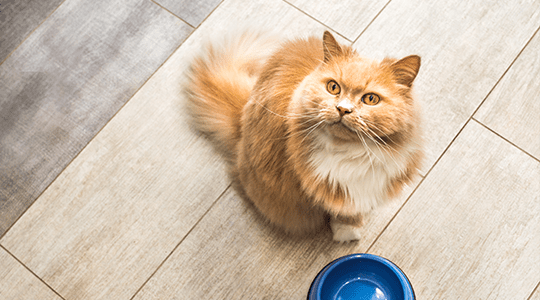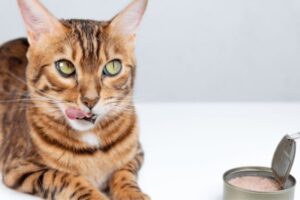Introduction
As our feline companions age, their nutritional needs evolve, requiring careful attention to ensure they remain healthy and vibrant. Understanding these needs is essential for providing the best care possible for our beloved senior cats.
Understanding Aging in Cats
Cats, like humans, undergo changes as they age. Factors such as genetics, environment, and lifestyle can influence the aging process. As cats grow older, they may experience a decline in organ function, changes in metabolism, and a greater susceptibility to certain health conditions.
Common Health Issues in Aging Cats
Arthritis, dental problems, and kidney disease are among the most common health concerns in aging cats. Arthritis can cause stiffness and discomfort, while dental issues can lead to pain and difficulty eating. Kidney disease is prevalent in senior cats and requires careful management through diet and medication.
Key Nutritional Needs for Aging Cats
Protein remains a crucial component of a senior cat’s diet, supporting muscle health and overall vitality. Adequate fiber intake helps regulate digestion and prevent constipation. Senior cats also need sufficient water consumption to maintain hydration and support kidney function. Essential vitamins and minerals, such as vitamin E and omega-3 fatty acids, are vital for overall health and well-being.
Choosing the Right Food for Aging Cats
When selecting food for aging cats, consider senior-specific formulas designed to meet their unique nutritional requirements. Consultation with a veterinarian can help determine the best diet for your cat based on factors such as age, weight, and health status.
Feeding Guidelines for Aging Cats
Portion control is essential to prevent obesity and maintain a healthy weight in aging cats. Divide meals into smaller, more frequent feedings to accommodate their changing metabolism. Special dietary considerations may be necessary for cats with specific health conditions, such as diabetes or kidney disease.
Supplements for Aging Cats
Supplements such as omega-3 fatty acids, joint support formulas, and antioxidants can provide additional support for aging cats. These supplements help promote joint health, reduce inflammation, and support immune function.
Hydration Importance
Ensuring adequate water intake is crucial for aging cats, as dehydration can exacerbate existing health issues. Encourage drinking by providing fresh water sources throughout the home and offering wet food, which has a higher moisture content than dry kibble.
Physical Activity and Mental Stimulation
Regular exercise and mental stimulation are essential for maintaining mobility and cognitive function in aging cats. Engage your senior cat in interactive play sessions and provide opportunities for exploration and enrichment.
Monitoring and Adjusting Diet
Regular veterinary check-ups are essential for monitoring your cat’s health and adjusting their diet as needed. Pay attention to changes in appetite, weight, and behavior, as these may indicate underlying health issues requiring dietary modifications.
Tips for Transitioning to a New Diet
When introducing a new diet to your aging cat, do so gradually to minimize digestive upset. Mix small amounts of the new food with their current diet, gradually increasing the proportion over several days to weeks. Be patient during the transition period, allowing your cat time to adjust to the new food.
Special Considerations for Cats with Health Issues
Cats with pre-existing health conditions may require a tailored diet to manage their specific needs. Work closely with your veterinarian to develop a nutrition plan that addresses your cat’s individual health concerns while providing essential nutrients for overall well-being.
The Role of Love and Care
Above all, love and care are essential components of ensuring the health and happiness of aging cats. Provide a supportive and nurturing environment, filled with affection and companionship, to promote emotional well-being alongside physical health.
Conclusion
Understanding the nutritional needs of aging cats is crucial for ensuring they enjoy a happy and healthy life in their golden years. By providing a balanced diet, regular veterinary care, and plenty of love and attention, you can help your senior cat thrive well into their twilight years.
FAQs
- What are the signs that my cat is aging? Signs of aging in cats may include reduced activity levels, changes in appetite, weight loss, and dental issues.
- Should I switch my cat to a senior-specific diet? Senior-specific diets are formulated to meet the unique nutritional needs of aging cats and may be beneficial for maintaining their health and vitality.
- Can I give human food to my aging cat? While occasional treats of human food may be safe for cats, it’s essential to avoid feeding them anything that could be harmful, such as foods high in fat, salt, or spices.
- How can I encourage my cat to drink more water? Providing multiple water sources throughout the home, using a water fountain, and offering wet food can help encourage your cat to drink more water and stay hydrated.
- When should I consult a veterinarian about my cat’s diet? If you notice significant changes in your cat’s appetite, weight, or overall health, or if you have concerns about their diet, it’s essential to consult with your veterinarian for personalized guidance and recommendations.

